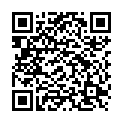|
|
|
| Module code: IPS.IC |
|
1VU (1 hour per week) |
|
0,5 |
| Semester: 1 |
| Mandatory course: yes |
Language of instruction:
English |
Assessment:
Attendance & participation in class
[updated 14.03.2023]
|
EPS.IC (P231-0156) European Project Semester, Bachelor, ASPO 01.10.2024
, semester 1, mandatory course
IPS.IC International Project Semester, Bachelor, ASPO 01.10.2020
, semester 1, mandatory course
Suitable for exchange students (learning agreement)
|
15 class hours (= 11.25 clock hours) over a 15-week period.
The total student study time is 15 hours (equivalent to 0.5 ECTS credits).
There are therefore 3.75 hours available for class preparation and follow-up work and exam preparation.
|
Recommended prerequisites (modules):
None.
|
Recommended as prerequisite for:
|
Module coordinator:
Dr. Julia Frisch |
Lecturer:
N.N.
[updated 14.03.2023]
|
Learning outcomes:
After successfully completing this module, students will be able:
- to identify and discuss essential aspects of intercultural communication,
- to establish a connection between theoretical models and practical intercultural issues,
- to identify and analyze reasons for misunderstandings between members of different cultures,
- to understand their personal and professional life in relation to their own culture, the culture of team members and the culture of their host country,
- to organize group work in a multicultural team,
- to identify and solve conflicts a multicultural team,
- to improve their empathy towards others and their intercultural communication skills,
- to show compromise, tolerance, and respect for others,
- to further develop of confidence in themselves and trust in others.
[updated 14.03.2023]
|
Module content:
Discussion of fundamental questions of intercultural communication:
- Culture and cultural identity
- Dealing with prejudices and stereotypes
- Acculturation and culture shock
- Verbal and non-verbal communication
- Examples of culture models and intercultural communication strategies
Discussion of issues relating to collaboration in multicultural teams:
- Establishing ground rules for the team
- Dealing with conflict
Case studies and examples will be adapted to the needs of the students.
[updated 14.03.2023]
|
Recommended or required reading:
Hofstede, G., Hofstede, G. and Minkov, M., 2010. Cultures and Organizations: Software of the Mind. 3rd ed. McGraw-Hill.
Lewis, R., 2018. When Cultures Collide: Leading Across Cultures. 4th ed. Nicholas Brealey Publishing.
Required online reading and further literature will be given to participants during the course.
[updated 26.08.2022]
|

